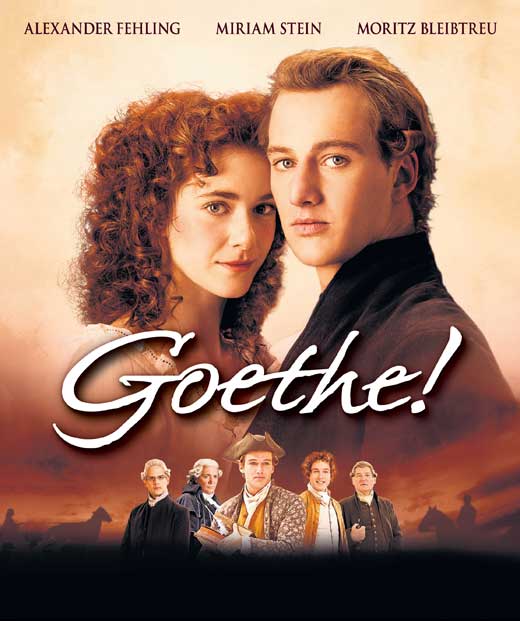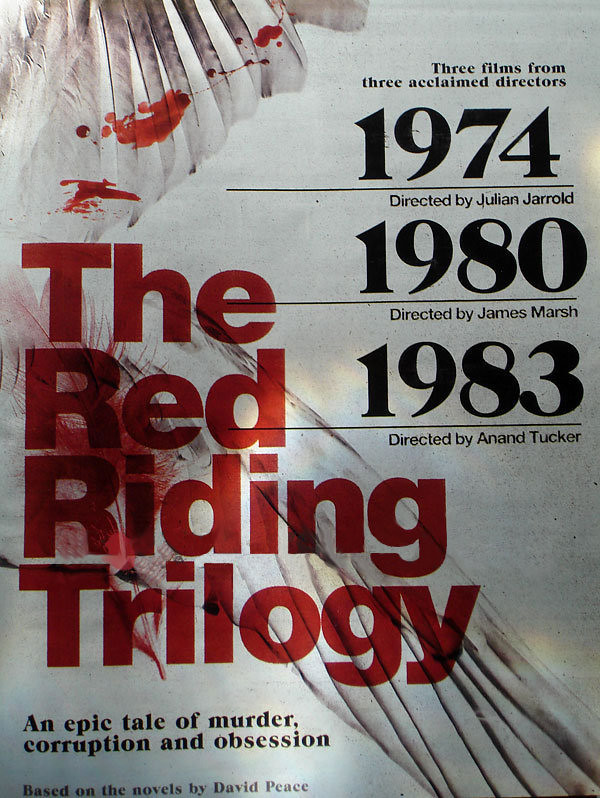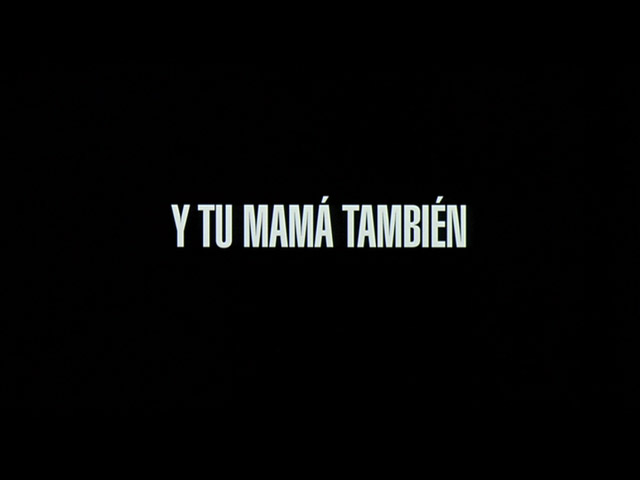
I have always wished I knew more about Goethe and The Sorrows of Young Werther. It's always been a bit of a blind spot. All I knew, really, about Young Werther was that it's about how being young and heartbroken sucks and is supposedly responsible for more suicides than any other single work in the history of western literature. All I knew about Goethe was that Germany considered him their own personal Shakespeare and he was kind of a big deal. (Full disclosure: I completely forgot he was responsible for Faust, though halfway through this film I had my hunches.) So I was not in the ideal position to watch a film overflowing with nods to his most famous work -- though I seemed to be in a better position than the vocal minority of housewives and silver hairs who surrounded us in the theater.
For the most part, I liked it. Bits of it clung too easily to the hoariest of romance film formulas, but Wikipedia suggests that those things were true to the texts, which suggests to me that some of those hoary formulas may owe a debt to this, or at least to literature from this era. Reading how Young Werther is an amalgamation of Goethe's life, his friend Jerusalem's, and his fantasy version of events with Charlotte Buff, it's fitting to find a different configuration of these elements come alive in the film. In fact, reading just the summary on Wikipedia gives me already a newfound respect for both the film and its drama.
My one nagging thought, then, concerns the end. Young Werther did reportedly turn Goethe into an overnight sensation and celebrity, as was dramatized in the film, and that in itself felt sudden but didn't bother me. I enjoy that he leaves the work to Lotte and demands she burn it, but her final gift to him ("We cannot be together in truth, but we will always be together in poetry," she tells him) is the publication of his longing for her and the pain he's endured. It's a beautiful love letter outside the confines of actuality, wherein Lotte remains with the stable, mostly decent Albert. Even the reversal of Goethe's father from frustration to pride is perfectly fine with me (because even though he disdains all that "scribbling," he really only wants what's best for the boy, which in his mind is success -- not necessarily law).
What sticks out like a sore thumb about the end is Goethe's own reaction to all this. He seems overjoyed, bubbling with glee, without a care in the world. I wanted this ending, where his lost love is both literally and figuratively what gives him the recognition for the only other thing he's ever loved, to be bittersweet. He got what he wanted by losing what he wanted, and his heart suffered terribly for what he gained. Showing him let go of all that with such ease, shrugging off the inconvenient weight of all that "Sorrow" so readily, devalues the journey he's gone through and the loss he's borne. It twists the rest of the story, for me, in an awkward direction, where love and longing and loss become palatable experiences if artistic success can be gleaned from them. And while I may even, on some level, agree with that sentiment, to deny the sacrifice for the goal seems to happily render the sacrifice null, or close to.
So yeah, that ending (and his reaction to the story's conclusion) feels a little too 80s comedy for me. I half-expected Goethe to leap upward and freeze-frame in mid-air, knees bent, arms out, laughing hysterically with his buddies. But everything up until that point was really nicely handled, and much richer once I've done even the barest research into the story behind the story. Call it one more book I'd like one day to read, but who knows. As I've said, it's a depressingly long list.
Seen at the Broadway Metroplex, as part of the Portland International Festival.



